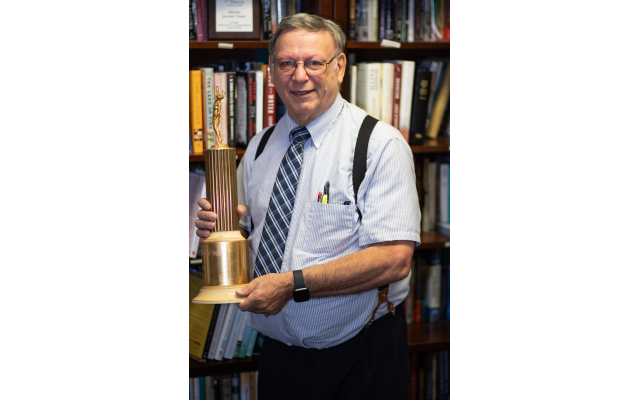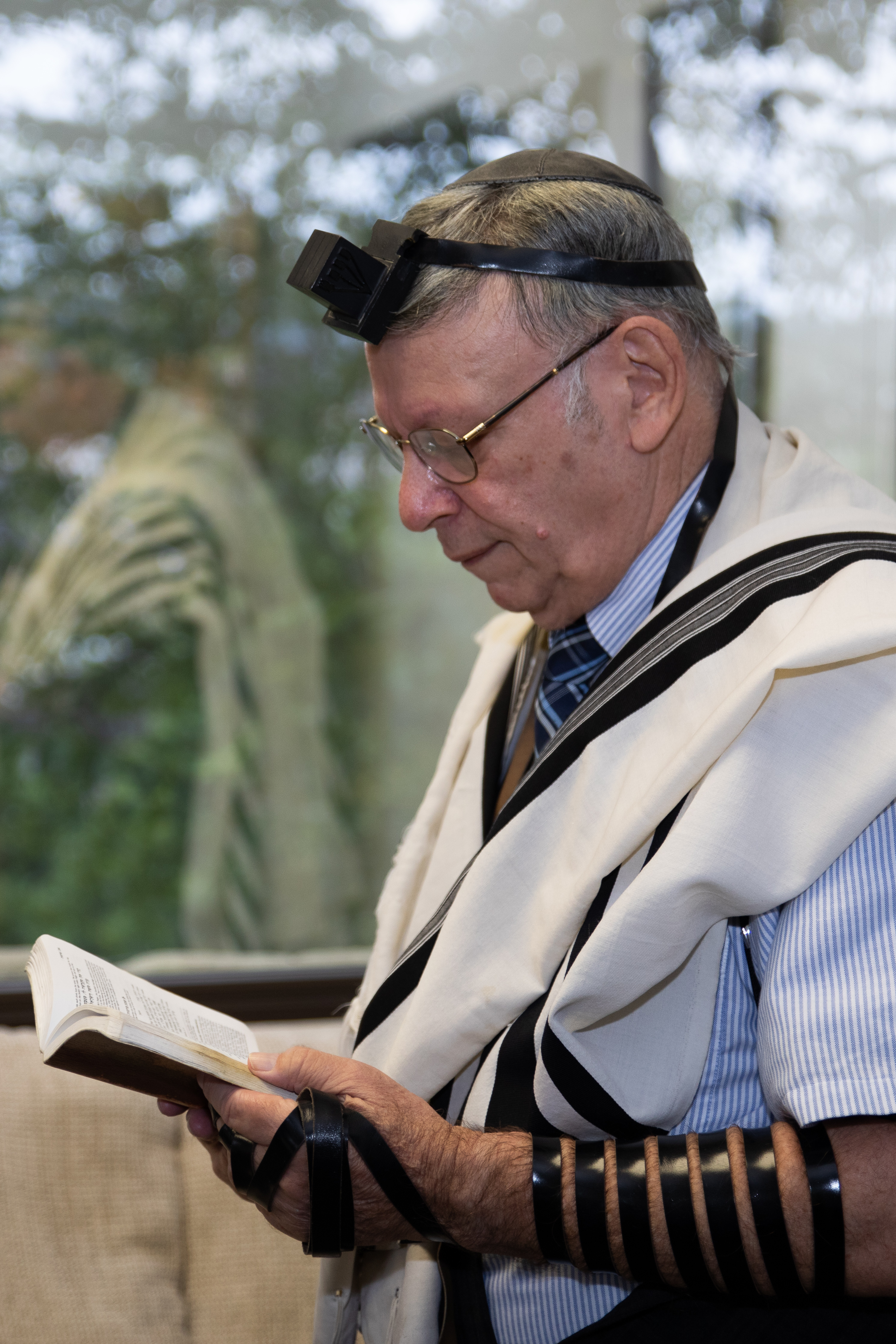From the Basketball Court to College Coach
Mark Fisher wasn't always a college counselor. In fact, he was once a star on his junior high varsity team and dreamed of playing college basketball.

Meet the Press
By Roni Robbins
Growing up in New Haven, Conn., all Mark Fisher ever wanted to do was play competitive basketball. Living across the street from a basketball court, he came home from school for lunch and gulped down his food quickly so he could play before heading back to class.
In high school, he was a star rebounder on his junior varsity team. He didn’t know if he’d make the varsity team, so plan B was joining the Jewish Community Center team. His shining moment was winning the team’s Joseph Weiner Sportsmanship trophy in his senior year. It’s a two-foot-tall bronze prize with a player on top, now with a broken hand, which he proudly sported during an interview with the AJT about his life leading up to his college-themed columns.
“I went up for a rebound and was hit from behind.”
The injury cut his basketball career short, but propelled him into his current field: college counseling.
“It had a big effect,” he said. “I didn’t like to see people waste their talents.”
When he couldn’t play anymore, he became a reporter and later sports editor for his high school newspaper. This led to the same role at the all-male Franklin & Marshall College in Lancaster, Pa., where he majored in sociology. (He became co-editor of the college newspaper by his senior year.)
Fisher traces his interest in career counseling to his own college counselor and when he was an orientation leader his sophomore year of college.
He advised students and helped them find their path. “One student, years later, became president of the college.”
In New Haven, to be a guidance counselor three years of teaching was required. So he taught social studies to inner-city children in junior high. With a grant from the state, the students learned math at one point by seeing how a hospital was built and estimating how many rooms, doctors and nurses were needed. To learn about transportation, they’d go in an airplane. “Some of them had never gone in an airplane in their life.” For communications, they’d visit television stations in New York, Fisher said with an excitement that reveals his pride.

In 1975, as a result of connections between the directors of the New Haven and Atlanta Jewish federations, he was asked if he’d come to Atlanta to lead a new vocational services program. His initial concerns were: “Where is Georgia and where is Atlanta, and most importantly, are there Jews there?” recalled Fisher, who wears a kippah, wraps tefillin daily and regularly attends services at Congregation Beth Jacob near his home.
The Atlanta Jewish Federation’s Employment Services became the Gate City B’nai B’rith Lodge Career and Counseling Services. The program mostly catered to immigrants. In 1986 it became an independent agency, Jewish Vocational Service and eventually a part of Jewish Family & Career Services. Senior services were also offered. But Fisher longed to work again with children.
So he started his own college and career counseling service in 1994, Fisher Educational Consultants. He showed me an example of one of four, 4-inch loose-leaf binders he keeps with detailed information and statistics on prospective colleges his clients can consider.
The students take inventory tests to determine the best colleges, majors and career, and complete a higher education preference guide, which is 13 pages for most clients, with two extra pages for Jewish students to indicate their specific religious and social interests on campus.
As a contributor to “The College Finder: Choosing the School that’s Right for You” by Steven Antonoff, he lists schools with Jewish populations and kosher food. “The editor calls me when the next edition comes out” for an update, Fisher said.
Towards the end of a list of about 10 steps for students working with him, Fisher indicates he helps with resumes. For instance, he offers students 143 “power” words to choose from for their resume, such as performed, organized and participated.
“When I do college research, I have to be them. I have to look at the world as they look at it, not as I look at it. I have to know everything.”
Among his college success stories, “There were students who nobody thought would go to college. It wasn’t easy. They found the right college and they became successful.”
He also tells the story of his son-in-law who got a doctorate from Stanford University in physics and initially worked for a company that invented a machine to analyze DNA quickly. But then he went to work for the Boston Consulting Group, and Fisher wondered why. The response: “Because he knew how to solve problems.”
Fisher leaves college searchers with one last piece of advice: “Attend a school that’s a good-fit school, a school you can be successful at and enjoy.”
He, himself, may not have fulfilled his childhood dream of playing college basketball, but he still plays an occasional game of hoops with his family. He has five married children and as of recently, 19 grandchildren and four great-grandchildren. Two of his sons and a few of his grandsons seem to have inherited the basketball gene. When they get together for Passover, they are known to play two-on-two or three-on-three. But he has a few rules: “They don’t block my shots. They don’t steal the ball away and I don’t have to rebound.”



comments